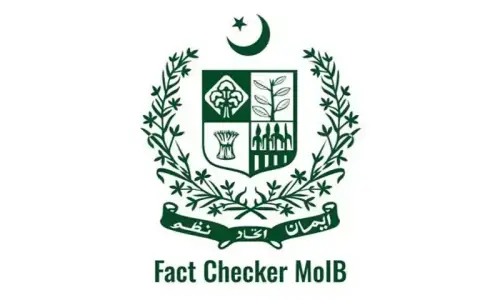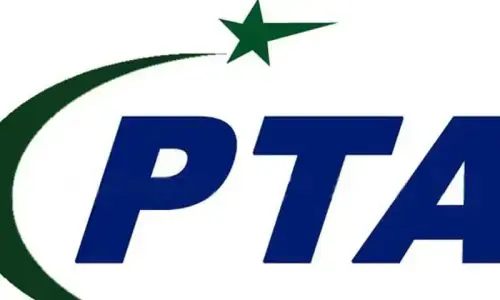TERMING the current system as a sham democracy, Dr Tahirul Qadri has promised genuine democracy in Pakistan through a revolution. Given his impressive religious credentials, one is thankful to him for championing democracy vociferously, for some religious leaders out-rightly reject democracy. One also agrees with his critiques of current Pakistani democracy and his desire for a better democracy. However, one disagrees with his preferred method, ie, revolution.
Before jumping into the discussion, it is appropriate to follow French philosopher Voltaire’s advice, who famously said, “If you wish to converse with me, define your terms [concepts].” Blending popular desires with academic definitions, one can say that genuine democracy is when elections are regular and credible; corruption is low; government services are high-quality; people feel secure and rights are respected.
If one reviews all events generally branded as revolutions, three features emerge. Firstly, revolutions refer to fundamental changes in political and/or economic systems, ie, from monarchy to democracy or capitalism to communism.
Secondly, they are led by people outside current power structures. Thus, palace and military coups are excluded.
Thirdly, these outsiders use extra-legal measures, eg, war or demonstrations, to achieve change since current legal structures disallow peaceful change efforts.
It is debatable whether one should call it a revolution if outsiders topple the elected Sharif government through demonstrations and instal another elected government since there would be no structural change in the political system; at most a more competent elected government would replace a less competent one.
More fundamental is the issue of what revolutions have achieved globally, for there is not one revolution which delivered enormously improved governance immediately. Take the highly celebrated 18th-century American and French revolutions. All they achieved was to replace monarchies by highly imperfect democracies no better or even worse than Pakistan’s today. It was decades later by the middle of the 20th century that governance reached the high levels prevalent today.
Consider next the Arab Spring revolutions. Governance quality has either deteriorated or stayed unchanged. Ethiopia’s 1970s revolution which toppled Emperor Selassie actually produced massively worse governance.
The 1948 Chinese revolution created mixed results, with land reforms combined with starvation, death and repression. It was only after Deng Xiaoping’s 1978 peaceful ascension that China started its development spree.
Iran certainly has independent foreign policies since its 1979 revolution but its actual governance is no better than Pakistan’s. It lags behind Pakistan on the Transparency corruption index and on many sub-dimensions of the World Bank Governance index. Moreover, there is more openness and freedom in Pakistan.
This review provides the rather sobering conclusion that revolutions often usher in more authoritarianism and incompetence and in the best cases only end up replacing autocratic systems by highly imperfect democracies that takes decades to mature.
With such an enormous time lag between revolution and eventual maturing of democracy, it is debatable how much credit for the eventual maturing can be given to the original revolutions, since there were so many temporally closer events that also contributed to the maturation. It is to these intermediate events and the question of how imperfect democracies in the West became better democracies that we must consider next.
A review of Western history reveals that it was not further revolutions that transformed imperfect democracies into genuine democracies but a series of social movements that incrementally improved governance over the decades, eg, anti-slavery, civil rights, accountability and access to information, women’s rights and other movements.
Revolutions are the right tool for transforming authoritarian systems into nascent democracies since autocrats do not allow citizen-led social change. However, they are an inappropriate and excessive tool for refining imperfect democracies into mature democracies, just as a sledgehammer is the right tool for breaking a huge rock into small pieces but a chisel is the right tool for refining coarse rock pieces into perfect statues. Revolutions topple systems; social movements improve imperfect systems by working within them.
Does Pakistan require the sledgehammer of revolution or the chisel of social movements today? Those advocating revolution forget that Pakistan has had three already, one each that helped overthrow or weaken Ayub, Zia and Musharraf. Revolutions are justified where the system is autocratic and bans peaceful advocacy of change. Despite its flaws, there is ample space in today’s imperfect democracy for peaceful advocacy, as shown by the ease with which Dr Qadri holds long-distance rallies throughout Pakistan. Compare this with the crackdown on lawyers and the media under Musharraf. Or compare the situation under the Shah’s Iran.
People justify Tahirul Qadri’s long-distance revolution attempts by claiming that Khomeini did the same. However, in the Ayatollah’s case, there was the ‘small’ matter of his facing certain arrest and possible hanging if he returned. Pakistani democracy, despite being highly imperfect, places no such restrictions on Dr Qadri.
Thus, Pakistan needs a series of social movements to help improve its democracy. With his impressive oratory, widespread grass-roots network and apparent commitment to democracy, Dr Qadri can play an important role in strengthening social movements in Pakistan rather than attempting redundant revolutions. His focus should be on educating people about the virtues of democracy, organising them and applying increasing pressure on the government through demonstrations if it fails to implement genuine electoral reforms in line with global standards before the next elections.
The writer is a development and political economist and affiliated as a Senior Fellow with UC Berkeley.
Published in Dawn, May 20th, 2014



























